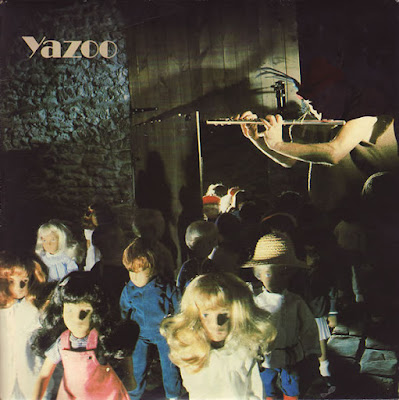
Number one for one week on 26th July 1986
“Folsom Prison Blues” was released from the album as a single, and an ordinary studio recording of “The Folk Singer”, co-written with Charles E Daniels, was chosen to sit on the flip. It might then have rested there largely unnoticed, but Burl Ives was quick to spot its mournful charms, recording it for his album “The Times They Are A-Changin’” in the same year, staying broadly faithful to the concept. It’s a wordy yet – on the surface – fairly simple tale of a forgotten singer who finds himself suddenly ignored by a public who once wanted to crowd and pester him with their admiration. The singer’s inability to adapt to his new empty environment is broached early on (“I pass a million houses but there is no place where I belong/ All I knew to give you was song after song after song”) with typical Cash-esque hints at his outsider status. Whoever the 'singer' is, you're left pretty convinced that there's nothing else he can usefully do with his life.
It’s not clear whether Cash was worried about his own future when he recorded it, but it’s not unfair to speculate that he might at least have been looking over his shoulder at those whose careers had been less successful, acknowledging that in the music business, longevity is often a fluke, not a given. Speculation online is rife about who he might have been thinking about, but the candidates are numerous; the tale of talented musicians, appreciated briefly when their talent peaked and happened to align with the public’s tastes, then rapidly forgotten, was not new even in 1968.
Above that, though, there are hints towards the growing invisibility of the older person in society, the slick young buck with his fresh ideas being reduced to a husk. As he wanders through streets he may have once been chauffeured through wearing his old fashioned clothes, he suddenly finds no eyes being drawn in his direction in either condemnation or admiration. His rebellion has become meaningless, and his only hope is that the children of the future reappraise his efforts – a problem that most creative people are left to desperately confront.
The original arrangement is simple and nigh-on perfect, greeting the singer’s fate with subtle arrangements and gorgeous downwards guitar twangs, which might be why Burl Ives wasn’t tempted to tamper with it much. Glen Campbell, on the other hand, took the flipside and exposed it to peculiar degrees of sunshine in 1970 – his version is a sweet yet daring finger-picked, bitter-sweet melody, “the singer” still singing his heart out rather than moping and dragging his heels.
Nick Cave’s version in 1986 was somewhat unexpected, but takes the cautious Ives approach of “don’t fuck with a classic” rather than the more radical Campbell move. So similar is it, in fact, that the only major difference is that Cave throws in the f word towards the end, something even Cash would never have considered in ‘68. It makes “the singer” seem threatening, a Grim Reaper character pointing his finger at the comfortable and the ignorant, rather than a completely defeated outsider. Cave makes you think the singer will be back, if not due to reappraisal, then perhaps on the headline news for some act of public indecency. It shifts the tone of the work slightly, but not enough to make it feel like an overhaul.
“The Singer” was released at a time when Cave appeared to be repositioning himself as a performer. His earlier work with The Birthday Party was demented, raucous and deliberately niche – punk rock at its loudest and most unrelenting. Two minutes spent listening to a Birthday Party track could feel strangely exhausting, and in his public’s mind Cave was a ferocious performer and unpredictable loose cannon. Once that group ceased to be, the Bad Seeds were formed and his moves became more measured (though often no less ghoulish).


